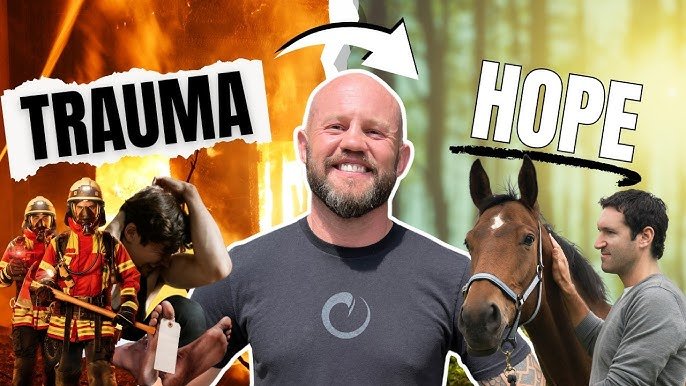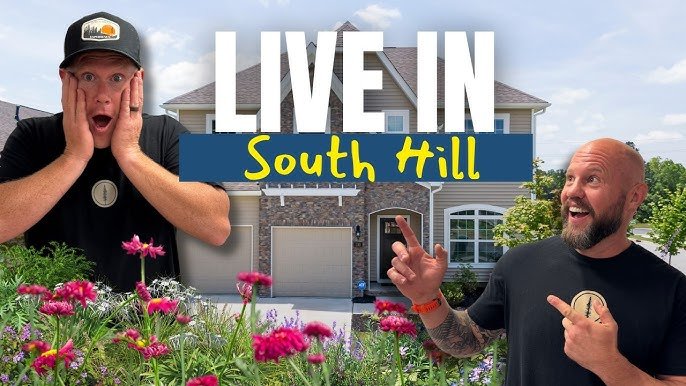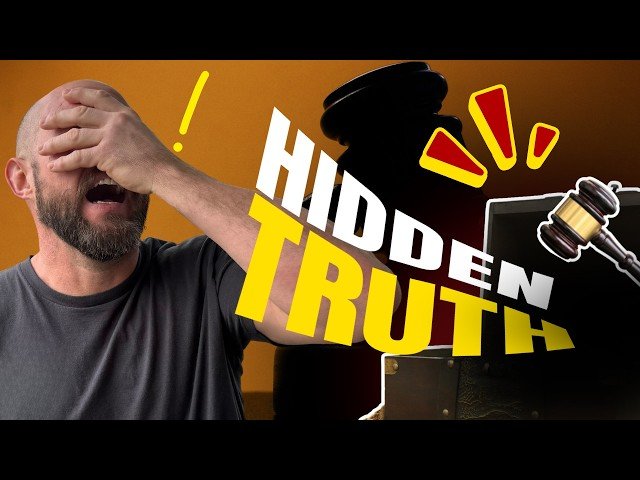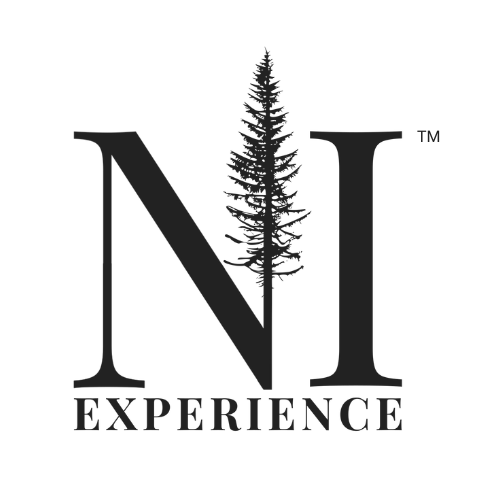Inside the Red and Blue Foundation: Real Support for First Responders
When crisis hits, the character of a community is revealed. In this candid North Idaho Experience podcast episode, we sit down with Kassi Allen—owner of Anchored Coffee and Director of Fundraising for the Red + Blue Foundation—to unpack what real support for first responders looks like before, during, and long after tragedy. This isn’t performative charity. It’s a coordinated, boots-on-the-ground response powered by volunteers, a vetted mental-health network, and a community that shows up.
Why Kassi + Anchored Coffee Are Part of the Story
Kassi’s connection to first responders runs deep. Her father served as both a state trooper and in the Army. After more than a decade at Starbucks, she felt called to do more than manage a store; she wanted to create a safe harbor for law enforcement and firefighters. That impulse became Anchored Coffee, which quickly evolved into a trusted gathering space where officers could brief in peace and talk candidly without judgment—or eavesdropping.
The culture at Anchored reflects that mission. During hiring, staff are told plainly: first responders come here to decompress. Conversations are confidential. If a topic is too heavy, step out—no drama, no gossip. Kassi’s stance is simple: “If saying it out loud helps you take it out of your backpack, I’ll gladly hold the space.”
Anchored has grown from one shop with five employees to five locations and 40+ employees, plus an in-house bakery hand-rolling hundreds of bagels and baking scones daily. Beyond caffeine + carbs, Anchored is often a drop-off point for donations and a logistical hub when the foundation mobilizes.
What the Red + Blue Foundation Actually Does
The Red + Blue Foundation serves first responders in critical incidents and in everyday crises. Two pillars define the work:
- Rapid Incident Response
When tragedy struck recently in Coeur d’Alene, the foundation spun up within minutes: board members on site, laptops open, needs assessments running, food sourced, a trailer loaded, and drops coordinated to command posts + hospitals. They built separate, dedicated bank accounts for the incident and for individual families, then went hard to quell pop-up fundraisers and misdirected donations. A designated family liaison and department liaison streamlined communications so nothing fell through the cracks.
For two weeks straight, the team fed three fire stations, three meals a day—while fielding calls, organizing housing, and verifying every would-be fundraiser that surfaced in comments or voicemail. Their goal: eliminate chaos so care reaches the right people, fast.
- Confidential Mental Health Support
The foundation funds confidential therapy with clinicians who pass a cultural-competency vetting designed for the realities of public safety. As Kassi puts it, first responders are “a unique breed” with dark humor, heavy stories, and job-specific stressors. New therapists are screened with scenario work and must be comfortable giving direct accountability, not platitudes.
They also track the grief timeline that often follows trauma: an uptick in need at three weeks, three months, and six months—then anniversaries and “the year of firsts.” The fund exists so no one is turned away, even when budgets are tight.
“You can’t own what happened—but you can own how you respond.”
—A guiding principle Kassi took from Echelon Front training, and the ethos behind the foundation’s work
100% Donation Model + Why Local Matters
The foundation operates on volunteer power so 100% of donations tied to incidents go to families + needs on the ground. That’s not how most national platforms work. GoFundMe, for example, takes fees, and donors are at the mercy of whomever created the page. The Red + Blue model is the opposite: local, accountable, transparent, and immediate.
How to donate (as described in the episode):
- Online via the foundation’s donation page (fastest + simplest)
- In person at First Interstate Bank (you can designate incident/family/general fund)
- Drop-offs at any Anchored Coffee location for coordinated delivery
If you want your dollars to make a direct impact, give locally and let the Red + Blue team route funds where they’re needed most.
Real Outcomes: From Hospital Halls to Mortgage Relief
The episode shares several powerful updates and partnerships:
- A critically injured firefighter (“Dave”) was accepted into a leading Denver facility for an extended course of treatment—“a long road,” Kassi notes, but he is as tough as they come.
- Tunnel to Towers stepped in to pay off mortgages for impacted families—removing a crushing financial stressor at the hardest possible moment.
- The JW Foundation will cover the first three months of household bills following a line-of-duty death because paychecks and insurance don’t arrive overnight.
- Hundreds of firefighters from across Idaho (plus out-of-state agencies) traveled to honor the fallen. The brotherhood/sisterhood is real—and logistical help (meals, housing, supplies) matters.
Why Policy + Pay Still Matter
The conversation also surfaces hard truths about retirement ages, medical retirements, and compensation for first responders in Idaho. Panelists flag gaps around medical retirement thresholds, mental-health recognition, and the financial strain for families—especially when a life is cut short in the line of duty. Regardless of policy debates, the foundation’s stance is unwavering: help now, without delay, while pushing for systems to catch up.
Expansion Plans: Serving All Five Northern Counties
To date, the Red + Blue Foundation has focused on Kootenai County. But small departments in surrounding northern Idaho counties face the same risks with fewer resources. The board has already begun planning to expand coverage with local liaisons and clinician assignments so responders can get support without stigma—or small-town scrutiny—attached.
The model is working. In fact, departments from around the country (including NYPD) have reached out to learn how Red + Blue organizes incident response, fundraising, and mental-health delivery. A two-page playbook is in the works so other communities can replicate the approach and avoid “too many cooks in the kitchen” during the most fragile moments.
Events That Fund the Mission: Gala + Golf
Two signature fundraisers fuel the general + mental-health funds:
- Annual Gala (January): Next up is “A Night in Monte Carlo.” Last year’s 007-themed event raised $85,000—impressive for a first-time gala and a sign that North Idaho is all-in on supporting its protectors. Expect casino tables, community, and a mission-driven program that moves people to act.
- Annual Golf Tournament (at Avondale): It sells out fast and typically raises $30,000–$40,000. It’s fun, spirited, and yes—someone inevitably swims in a pond. The sponsor list grows every year.
How to help now: The foundation is actively seeking auction items—especially experience-based donations (think: K-9 bite-sleeve demo, ride-along days, chef-for-a-day, behind-the-scenes tours). There’s also a plan to add a website form for housing offers (Airbnbs + spare rooms) to streamline logistics the next time departments rally from all over the state.
Anchored Coffee’s Space for Community Events
Anchored’s newest Fourth Street location includes a conference room that can host 20 comfortably and up to ~30 with the right setup—ideal for weekly civic meetups like Patriot Pour, workshops, briefings, or private debriefs. As Kassi notes, the point is simple: give people a safe place to connect, learn, and look out for each other.
The Long Haul: Why This Work Doesn’t End After the Funeral
The conversation turns honest about grief, identity, and the realities of service. Retirement clocks, high divorce rates, and chronic stress paint a sobering picture—one reason the team tracks support needs at 3 weeks, 3 months, 6 months, and beyond. The foundation commits to staying when the casseroles stop and the crowd thins—helping with everything from therapy to yard work for widows to navigating benefits and budgets.
And Kassi models what it means to transform pain into purpose. After losing her father to suicide in 2014, she decided to own the response: “I can’t own that I lost my dad, but I can own the good I do with that situation.” That posture—ownership, not resignation—now shapes every activation, every fundraiser, every late-night spreadsheet.
How You Can Help Today
- Donate to the general + mental-health funds so the foundation never has to say no.
- Sponsor or attend the January gala and the Avondale golf tournament.
- Contribute auction items, especially high-value experiences that create bidding buzz.
- Offer housing (Airbnb/spare rooms) for out-of-area responders when needed.
- Choose local: your daily latte at Anchored Coffee helps sustain a business that continually pours back into first responders.
If you’re reading this from outside North Idaho and want to bring this model to your city, reach out. The Red + Blue Foundation is proof that a lean, volunteer-driven, clinically informed, locally accountable nonprofit can deliver fast, precise, life-changing support when it matters most.
Listen, Watch, Read






Your Guide to Idaho’s Best-Kept Secrets
Join our email list for exclusive insights, local tips, and the latest listings. Get closer to the Idaho lifestyle you’ve been dreaming of. Sign up today!




